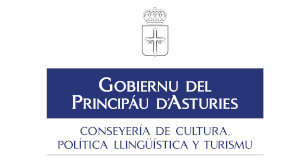Asturorum Regnum


After the defeat of the Goths by Moslems in the battle of
Guadalete in 711, The Astures led by Pelayo oppose the new invador, escaping
defeat thanks to a complex strategy at the battle of Cuadonga(718) which
gave them victory, freeing Asturies from the Moslem yoke, and led to Pelayo's
coronation as king. Thus was born the Asturorum Regnum and it was at this
point that the Astures began to evolve towards a superior social-state
structure.
Kings of Asturies:
Don Pelayo (718-737). Achieved independence for the district of Asturies(according
to Arab sources), situating his court in Canicas(Cangues d' Onís).
Favila (739-757). Son of Pelayo, founded the chapel of the Holy Cross
in Cangues d' Onis.
Alfonso I (739-757). Son-in-law to Pelayo and son of Pedro, dux of Cantabria.
He extended the frontiers of the kingdom as far as Bardulia (Castilla)
and Galicia, laying waste to the whole territory and also defeating a
moslem army.
Aurelio (768-774). Nephew to Alfonso I, he was at peace with the moslems.
Silo (774-783). Arrived at the throne on marrying Adosinda, daughter to
Alfonso I, crushed a Galician rebellion at the battle of Mt. Cubeiro.
Mauregato (783-791). Son of Alfonso I and a servant.
Bermudo the deacon (788-791).
Alfonso II (791-842). Established diplomatic contact with Charles the
Great and annihilated the moslem armies at Llodos(Asturies) and Anceo
(Galicia). Erected Oviedo as the capital of the kingdom.
Nepociano (842). Brother-in-law to Alfonso II.
Ramiro I (842-850). Son of Bermudo, he defeated the Normans at the battle
of Farum Brigancio (Galicia).
Ordoño (850-866). Son of Ramiro, he repopulated León, Astorga,
Tuy and Amaya.
Alfonso III (866-910). Populated Braga, Oporto, Orense, Eminio, Viseu,
Lamego and Coimbra, putting down two revolts in the region of Tarragona
and defeating the moslems at Polvorosa.









